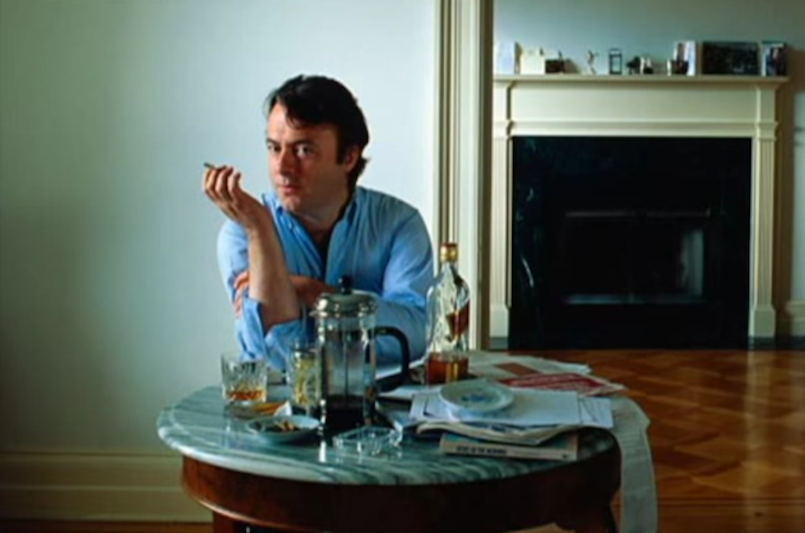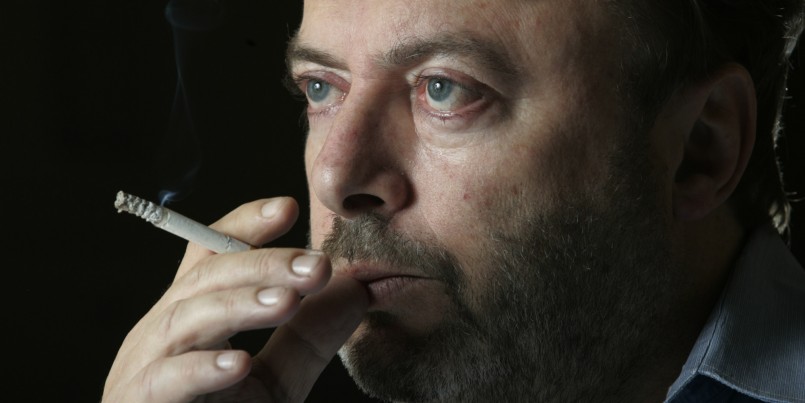
On December 15th, 2011, Christopher Hitchens died of complications from esophageal cancer.
The celebrated author, journalist, and political commentator had spent his entire life gathering and disseminating knowledge that affected much more than himself or his readers. His fans were enthralled with his command of the English language and his wit, while his detractors pointed out his shrewdness and hostility. From Mother Teresa, Henry Kissinger, and Bill Clinton to the Almighty God he so desperately wanted to rid the world of, the Hitch, as he was known to his friends, was fearless in his barbs.
His legendary putdowns of other intellectuals who dared to face him on a debate stage are fondly remembered as Hitchslaps. His personality was sometimes overbearing and often bolstered by a stiff drink and more than a few cigarettes.
Whether he is remembered as a titan of the written word or as yet another intellectual who said controversial things in order to further his career, it is undeniable that his life was one full of interesting lessons and experiences.
As an atheist, a lover of literature, an indulger of argument, and a man, the words and ideas of the late Christopher Hitchens mean a great deal to me and should matter to many more.
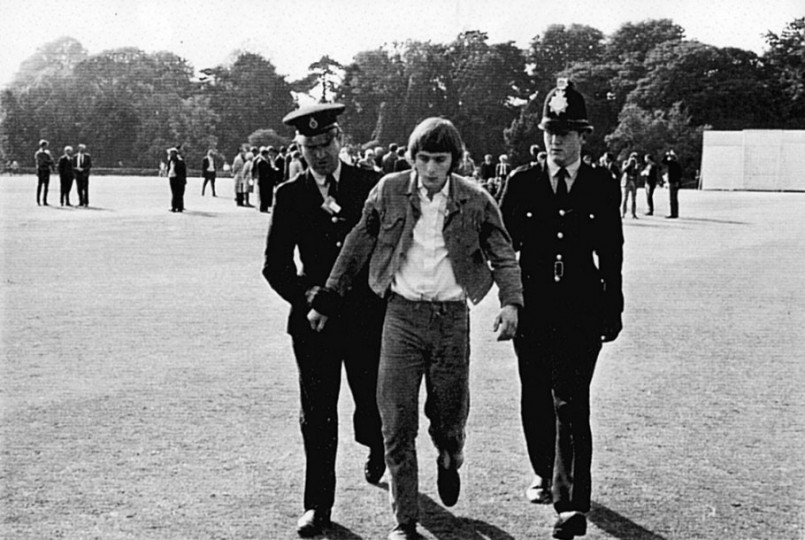
Early Life
Christopher Eric Hitchens was born on April 13, 1949 (he shared a birthday with Thomas Jefferson, an idol he would write a biography on later in life) in Portsmouth, England. The son of an English naval officer, his upbringing was somewhat austere. He found affection and enjoyment, for the most part, during the time he was able to spend with his beloved mother, Yvonne. In a heated argument on the subject of sending her son to a prestigious and expensive private boarding school, she would say to her husband, “If there is an upper class in England, Christopher will be a part of it.”
Spending the majority of his time in renowned English academies and eventually landing at Oxford for his university education, Christopher was remembered for his incredible memory and voracious appetite for reading. Able to pluck out long and obscure lines of poetry and literature from memory, Hitchens was an excellent writer and conversationalist from a very young age.
During his undergraduate years he would begin his lifelong affair with sex, cigarettes, and perhaps most famously, alcohol. His friends and colleagues would remark about his uncanny ability to consume large quantities of scotch (Johnny Walker Black with a splash of soda water was his preferred poison) and still pump out grammatically perfect articles and essays on a variety of subjects with disarming insight. His time at Oxford was spent in the company of now famous intellectuals like the novelist Martin Amis, as well as poets Ian McEwan and James Fenton. He also was reportedly in the company of his later adversary, U.S. President Bill Clinton, at the college party in which he smoked but “did not inhale” a joint and its smoke.
Hitchens was also a Trotskyite Marxist during this time and would be arrested multiple times for protesting the Vietnam War with fellow members of the party. Although a popular movement at this time, especially at liberal college campuses across Europe and the United States, Hitchens support for the party was more than a casual fling with Marxism. He would devote the rest of his life to espousing the benefits of Marxist thought even in the face of events like the fall of the Soviet Union. This willingness to hold close his idea, even when on the publicly losing side of an argument, would become part of the Hitch’s persona until his death.
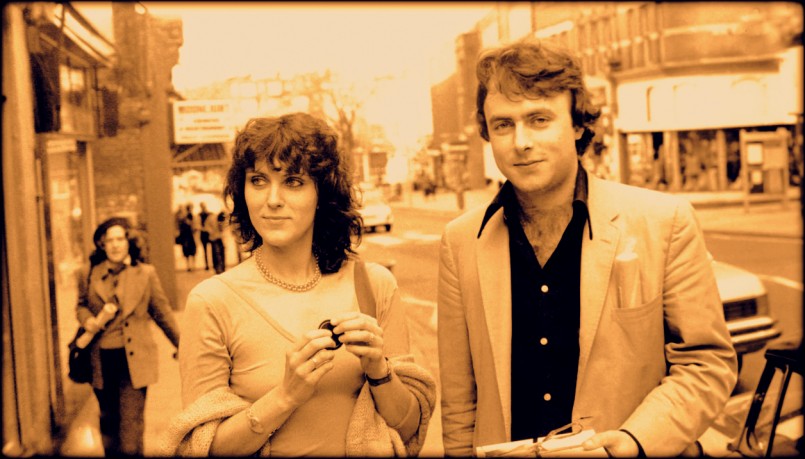
A Career In Journalism and His Journey To America
In 1970, after just 3 years spent at Oxford, Christopher Hitchens graduated with a bachelor’s degree in philosophy, politics, and economics. He moved onto working for small newspapers in the London area after graduation, before finally finding a home at The New Statesman in 1973, a left-wing publication founded in 1913.
Tragically, that same year would also bring news that would change Hitchens for life. His mother, Yvonne, the one female figure in his life that he had admired above everyone else, killed herself in a suicide pact with her lover, a defrocked priest, in Cyprus, Greece. Christopher would later admit that in her final hours, his mother had tried to reach him by telephone, but being the hard drinker and socialite that he was, he had missed these phone calls. This event and the guilt that it created for the young journalist would haunt Hitchens for the rest of his life.
After this, Hitchens would marry a young woman from Cyprus named Eleni Meleagrou. The couple would go on to have two children, Alexander and Sophia. However happy they might have been in the beginning, the couple would divorce a few years later after Hitchens met the woman that would become his second wife, and stay so until his death, American screenwriter Carol Blue. Hitchens and Blue would have one daughter, Antonia.
From 1973-1982 Christopher would make a name for himself in the London press for his direct and aggressive writing style. His coverage of various political events would become more popular with every article. While in the early stages of his career on Fleet Street, Hitchens would gleefully cover any instance of genocide, disparity, dictatorship, or war crimes, no matter where it was happening. While he found some fame in these writings, his public speaking skills were still not honed just yet, and he would stick to print journalism almost exclusively throughout this period. He was getting paid to write and people were paying attention, but his career still wasn’t indicative of the massive success he would one day become.
In 1983, Hitchens made quite possibly the most fruitful move of his career by immigrating to the United States. He became a frequent political contributor on C-SPAN and would go on to write for various publications, eventually becoming a contributing editor at Vanity Fair. For the first time in his life, Christopher Hitchens was seen as a real public intellectual and distinct voice of the liberal left. Some of his most famous articles for the publication would include:
- “Fetal Distraction” (2003) – Again butting heads with many on the left, Hitchens would argue in this piece that the left mischaracterizes abortion and completely disregards the value of human life that is potentially contained within a fetus.
- “The Vietnam Syndrome” (2006) – Addressing the frequent use of the dangerous chemical agent dubbed “Agent Orange” during the war in Vietnam, Hitchens brings to light the struggle of victims to gain compensation or treatment for their wounds caused by the chemical.
- “Kissinger Declassified” (2006) – Revisiting his old nemesis, Hitchens writes more about the man who he believed to be one of the most damaging figures of the 20th century.
- “Why Women Still Don’t Get It” (2008) – In response to the backlash that Hitchens received for his article detailing why he believed that women aren’t and don’t need to be funny, the journalist explains the sociobiological reasons for humor and why women writers, in their attempts to discredit his original statement, simply strengthened it.
- “The New Commandments” (2010) – Tackling the commandments of the Old Testament, Hitchens suggests that not only are many of the laws of Moses completely irrelevant or immoral, but that some of the most important laws that should be mentioned are noticeably absent.
During the period from 1983 until 2000, Hitchens would publish many controversial books and collections of essays including Letters To A Young Contrarian, No One Left To Lie To: The Triangulations of William Jefferson Clinton, The Missionary Position, The Trial of Henry Kissinger, and The Monarchy: A Critique of Britain’s Favorite Fetish.
Letters To A Young Contrarian – This short book explains the type of personality that one needs if that person wants to grow up to be someone who can play the devil’s advocate to any position, regardless of his/her opinions on the subject. More of an instructional pamphlet than a book, it is still commonly found on college campuses across the globe.
No One Left to Lie To: The Triangulations of William Jefferson Clinton – Christopher’s first foray into the murky world of being neither truly liberal nor truly conservative, this piece documents some of the more shady parts of the Clinton family legacy. With accusations such as rape, bribery, insider trading, and extreme greed, this book garnered the exact type of attention that Hitchens thrived on. At a time in which nearly every liberal in America was focused on defending the President from his conservative critics, the fact that one of the more liberal intellectuals of the time was attacking Clinton as well made headlines.
The Missionary Position: Mother Teresa in Theory and Practice – A criticism of the famous nun of the Catholic Church, this book and the accusations made in it would find their way into shows like Penn & Teller: Bullshit, The Daily Show with Jon Stewart, and Politically Incorrect with Bill Maher. Seen as a woman of devout faith, Hitchens attempted to show Mother Teresa in a more human (and negative) light. Her house for the dying in Calcutta, India was described by Hitchens as just that—a home for the dying. Instead of encouraging or providing proper medical care and a sterile environment, the Calcutta location gave little more than aspirin and encouraged prayer over antibiotics. Also in the book, Mother Teresa is portrayed as a woman of fame, jet-setting from country to country, sometimes accepting large amounts of blood money from dictators (like “Papa Doc” Duvalier of Haiti) and stolen funds from Wall Street embezzlers like Charles Keating.
The Trial of Henry Kissinger – Hitchens had a special place in his heart for the man he described as his greatest enemy– former Secretary of State and political scientist, Henry Kissinger. Describing him as a war criminal who has never left a country in better shape than it was when he found it, Hitchens held Kissinger responsible for dragging out the Vietnam War, the destruction in Laos and Cambodia, the assassination of the South Vietnamese president, and a harmful view of communism that neither accurately described it or combated it. He and President Nixon’s willingness to work with China, but not other communist nations like Cuba, was a constant source of frustration for the Marxist journalist and their bitter feud would last his entire life.
The Monarchy: A Critique of Britain’s Favourite Fetish – At a time in which there was possibly no bigger celebrity than the Princess Diana, Christopher Hitchens, shortly after her death, continued to comment on the U.S. and the U.K.’s obsession with the Royal family. He believed that the Queen and her family were completely irrelevant and should not be subsidized by the taxpayers of Britain anymore. He believed that the exaltation of Princess Diana from Americans sprang from an urge to actually have a royal representative of their own, something that Hitchens found to be extremely unappealing and un-American.
In 1989, during the media firestorm that surrounded the author of The Satanic Verses, Salman Rushdie, the now established Hitchens came to the defense of Rushdie’s right to free speech and was absolutely disgusted when many of his colleagues didn’t do the same. As a book that was considered offensive to Islam, the nation-state of Iran and its religious leaders had issued a fatwa (an Islamic religious/judicial ruling that in this instance involved a death sentence) on Rushdie. Hitchens argued that the political left had an obligation to defend Rushdie and his right to free speech, yet instead, they had cowered in the face of radical Islam’s call for Rushdie’s assassination. This blatant refusal to bow down to the masters of his ideology would be an early sign of the things to come from the young British immigrant and his pen.
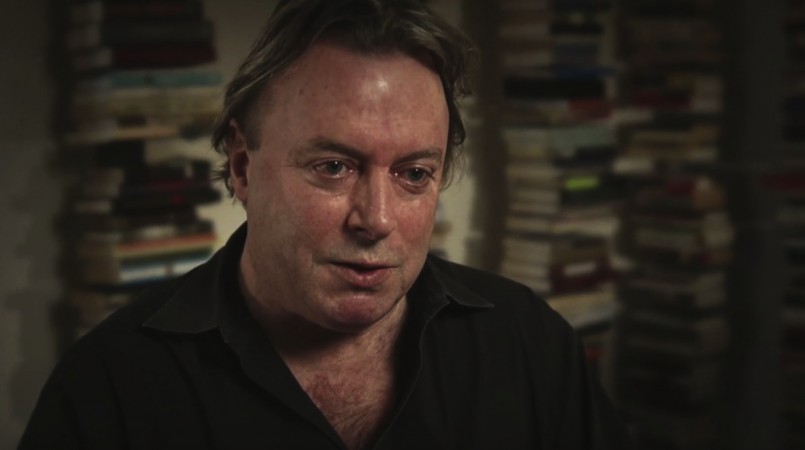
The Iraq War and The New Atheism Movement
After the attacks in New York City and Washington D.C. on 9/11 in 2001 and the 7/7 London bombings in 2005, Hitchens began to increasingly focus on mercilessly criticizing religion and American foreign policy, specifically foreign policy in relation to the policies of the administrations of George Bush, Sr. and Bill Clinton.
While he remained an important figure in the world of political criticism, it is his shift to the frontline of the argument over religiosity that will probably define the persona of Christopher Hitchens for the generations that will read his work long after his death. Even today in the year 2015, atheism, humanism, and other non-religious groups face obstacles in the American landscape. Polls show that many citizens not only distrust atheists but that even in the case of finding a qualified and decent political candidate of their own party who shares most of their views, they still would not win office if it were to become public that they are atheists or non-religious. But, in times past, especially after the 9/11 terrorist attacks, this sentiment was much more heavily felt. It was the mission of Hitchens to show the world that not only are atheists correct in their assumption that there is no god or deity controlling our daily lives, but that the people who understand this have a set of morals and beliefs based upon experiences in the real world instead of being reliant upon the promise of reward or punishment. In the face of modern headlines like The New York Daily News‘ “God is not fixing this,” which addressed the need to actually act on gun violence instead of praying for it to be fixed, our public discourse has changed to at least allow these types of arguments to enter the mainstream culture, and Christopher Hitchens is partly responsible.
A staunch critic of all things religious or considered holy, Hitchens would release perhaps his best known work, God Is Not Great: How Religion Poisons Everything. He would appear more on television shows like HBO’s Real Time With Bill Maher and Comedy Central’s The Daily Show With Jon Stewart, giving voice to a small but growing number of Americans who had begun to separate, and sometimes even completely eradicate, religion from their lives. He would continue to be controversial and unabashedly arrogant in many of his arguments. But he would always speak with eloquence and in his gentlemanly British drawl.
He became known as one of “The Four Horsemen” alongside other famous New Atheist authors Sam Harris, Daniel Dennett, and the evolutionary biologist Richard Dawkins. Although they weren’t a formal group, the four men would become the most well known advocates of the movement to encourage people with religious doubts or no religious convictions at all to “come out of the closet” to their families, communities, and the world.
Despite his liberal tendencies and past, Christopher Hitchens would thoroughly support the 2003 invasion of Iraq that was headed by the Bush administration and abhorred by most of his colleagues.
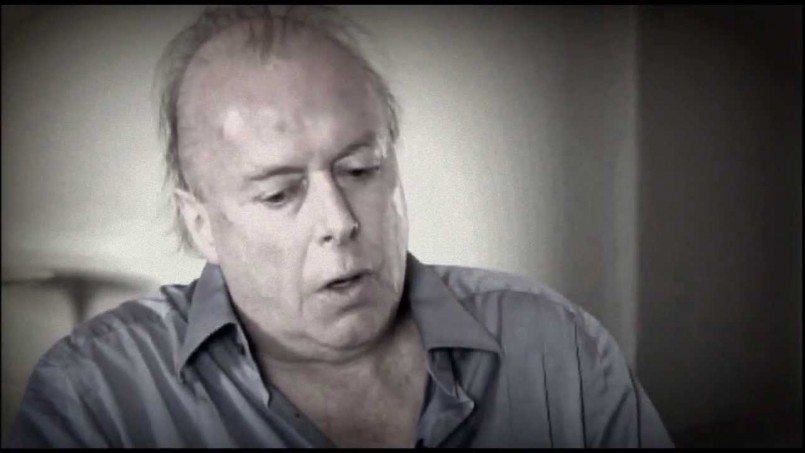
Cancer Diagnosis, Death, and The Legacy of Christopher Hitchens
While traveling on a book tour for his memoir, Hitch-22, Hitchens woke up one morning with a severe respiratory infection and could not get out of bed. He was luckily able to get to the phone in time and to phone for help, eventually being picked up by emergency services. After a series of extensive testing, he was diagnosed with advanced esophageal cancer, the same disease that had claimed the life of his father many decades earlier. Although known to be a man with unshakable principles and habits, during the period of time in which he was first diagnosed until his death, Hitchens voiced a particularly more shaky voice and soft tone when speaking about his lifelong addictions to alcohol and cigarettes. He stopped doing both for the entirety of his treatment, and despite his past positions—which sometimes even encouraged teenage smoking and drinking—he would reverse this stance and ask those who want to do such things to make sure and weigh the benefits and detriments of these vices.
Although he continued to grow sicker and sicker through rounds of chemotherapy and other treatments, Hitchens continued to tour, speak, and debate until he was no longer able to.
In an extensive interview with CNN’s Anderson Cooper, Hitchens would make sure to publicly state that any claims of him accepting a god or religion on his deathbed would either be a lie or the result of a “dangerous mix of medicine that dulls the senses and the brain.” Christopher Hitchens would continue to publicly appear and speak until November of 2011, ultimately writing his final published work from his hospital bed, a series of essay on life and death titled Mortality. He died on December 15th, 2011 from complications due to esophageal cancer in a Texas hospital.
The legacy of Christopher Hitchens is shaped by decades of writing, speaking, debating, smoking, and drinking. He encouraged experimentation with drugs and alcohol, sexuality, and ideas other than one’s own, yet in the same breath, the journalist tore down those whom he perceived to be false idols of Western culture like Mother Teresa, Ronald Reagan, and gods of any kind. His rock-star like status in the American left was something that very few journalists, authors, or intellectuals had attained before or have won since. His reputation as a “bad boy” who could hold his ground with the best of the best, on nearly any topic, in any form of media, was further mythified by the fact that he could usually do it while holding onto his 4th glass of scotch. His greatest wish was to impart his belief that argument, for the sake of argument, was not a waste of time. No cow is too sacred, no leader is too great, no idea is unchallengeable—everything must be questioned and held to a standard better than that which is probably achievable. In the mind of Christopher Hitchens, that was how true progress is made. When we lower the bar to accommodate others, we open the door to failure, greed, oppression, and at best, mediocrity.
Whether or not he was agreed with or vehemently hated (even gaining an entire website devoted to hatred for him, www.hitchenswatch.com) Christopher Hitchens was a master wordsmith and accomplished author who helped bring the concepts of humanism and atheism to the forefront of public discourse. His essays and examinations of foreign policy and political events are still purchased and read in large numbers.
His appetites for sex, alcohol, cigarettes, and conversation were the stuff of legend and, in the end, these vices probably led to his early death—a death that was softened by a well-worn and spectacular life. In the writer’s own words, “I spent my life burning the candle at both ends…and it gave a lovely light.”
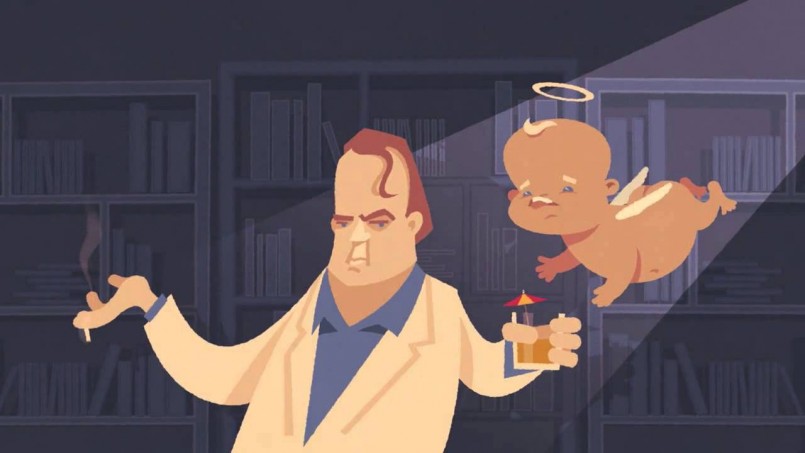
His Most Famous Criticisms
- Mother Teresa – The famed nun of the Catholic Church was revered by nearly everyone in the public sphere of Western nations. But one of her most notable critics was Christopher Hitchens. Once calling her a “…lying, thieving, Albanian dwarf,” the topic of his best seller The Missionary Position was accused by the writer of being guilty of medical negligence and accepting of blood money from the famous Duvalier family of Haiti. His unabashed criticism of the woman of faith would go on long after her death in 1997. It is worth noting that after the writings of Mother Teresa, in which she expressed her doubt in God (perhaps even her own atheism), the Hitch was noticeably less brutal when speaking of her. Instead of viewing her as a person of power in the church, Hitchens would later express the opinion that Mother Teresa was just another political and social tool of the Catholic Church.
- Henry Kissinger – As a member of the United States foreign policy team for some of the most tumultuous years of the 20th century, Henry Kissinger played an integral role in the war against communism. While Kissinger claimed to be completely against any sort of communism, he and President Nixon had no problem opening up trade negotiations with the Chinese. This apparent flip-flop on the matter would anger the young Christopher Hitchens and continued to do so into his adulthood and later life, as evidenced by his book The Trials of Henry Kissinger.
- Bill Clinton – As a self-proclaimed liberal and Marxist, Christopher Hitchens choice of the former President of the United States as his target might seem strange. Both attended Oxford University in England during the time of the Vietnam War, both were known to be darlings of the left, and both had an underground cult community that fiercely protected them. However, following the Paula Jones scandal in which Bill Clinton was accused of extramarital activities, Hitchens used his friend and contact within the Clinton Administration, Sidney Blumenthal, to report on the deeds of the president in his book, No One Left To Lie To: The Triangulations Of William Jefferson Clinton. Losing many of his more left-wing friends, some even gave him the unpleasant nickname of “Christopher Snitchens.” This perceived betrayal would, for some, ruin his reputation as a liberal. But to his most ardent fans, this would only highlight just how far Hitchens was willing to go in order to represent the truth, as he interpreted it, no matter the personal or public consequences.
- God, Allah, Yahweh, and Religion – Especially later in life, religion and its various iterations became a favorite target of the author and wordsmith. One of his more famous books, God Is Not Great: How Religion Poisons Everything, the antonym of the Islamic chant “Allah hu akbar” (God Is Great,) was obviously meant to create a controversial discussion about the effects of religion on society and its participants. Known to be an anti-theist, someone who both recognizes no deity and is glad that there isn’t one to recognize, the Hitch made no apologies for his thoughts on the subject.
Quotes From The Hitch
- “There can be no progress without head-on confrontation.”
- “Terrorism is the tactic of demanding the impossible, and demanding it at gunpoint.”
- “What can be asserted without proof can be dismissed without proof.”
- “Take the risk of thinking for yourself, much more happiness, truth, beauty, and wisdom will come to you that way.”
- “Everybody does have a book in them, but in most cases that’s where it should stay.”
- “You have to choose your future regrets.”
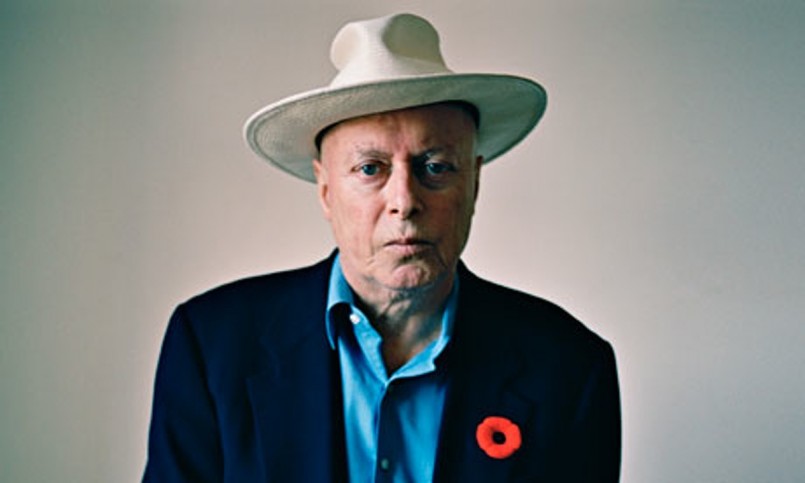
Goodbye, Christopher Hitchens. If you were wrong and there is an afterlife, I’m sure you’re raising hell over it.
David Stansberry is an intern contributor and student at Middle Tennessee State University majoring in Economics and English. He enjoys Star Wars, stand-up comedy, JFK conspiracy theories, and Krispy Kreme doughnuts.
Twitter: @Dave_Trace
Instagram: @Dave_Trace
Facebook: www.facebook.com/davidstansberryIII

